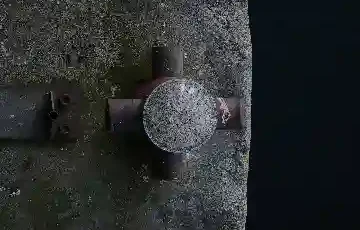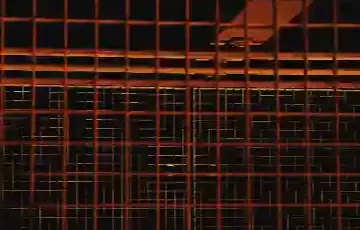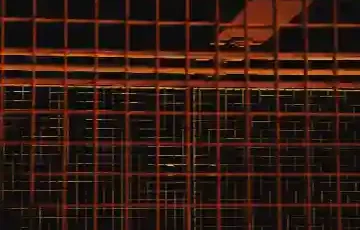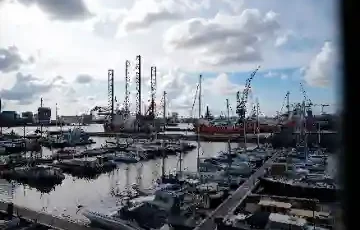
What is limitation and why is this crucial for your business?
Limitation means that your legal claim becomes legally unenforceable after a certain period. For international businesses operating in the Netherlands, this means that an apparently airtight contract breach or damage claim becomes worthless once the limitation period expires. Therefore, limitation requires proactive legal management: you must act timely to preserve your rights.
Why limitation deserves immediate attention under Dutch law?
International entrepreneurs often underestimate the complexity of Dutch limitation regulations. Approximately 23% of businesses in the Netherlands lose claims annually due to expired limitation periods. This leads to substantial financial damage that is completely avoidable. Moreover, recent legislative changes shortened various limitation periods, consequently giving you less time to respond.
Direct answer for urgent situations: The standard limitation period in the Netherlands is five years from the moment you become aware of both the damage and the liable party. Additionally, an absolute period of twenty years applies after the event that gave rise to your claim.
How do limitation periods work in the Netherlands?
Dutch limitation rules contain different periods depending on the type of legal claim. Understanding which period applies to your situation prevents costly mistakes.
General limitation periods under Dutch law
Dutch law primarily applies two limitation periods. Namely, a relative period of five years and an absolute period of twenty years. The relative period begins when you know about your damage and who is liable for it. Conversely, the absolute period starts directly at the damage-causing event.
Business example: Suppose your Amsterdam-based software company discovers in 2024 a data breach from 2019 that your competitor caused. You can litigate until 2029 (five years after discovery), provided this falls within twenty years after the breach. This dual protection safeguards both your interests and the legal certainty of the counterparty.
Contractual claims under Dutch law: when does your contract right expire?
Claims arising from agreements typically expire within five years after becoming due. However, the specific nature of your contract often determines deviating periods. For instance, consumer complaints about delivered goods have a shorter period of two years after delivery.
Exceptionally: are you a consumer and claiming product defects? Then you must complain within reasonable time after discovery, after which the limitation period starts. For B2B contracts in Amsterdam, this protection does not apply. Therefore, we advise entrepreneurs to include contractual agreements about limitation periods as standard practice.
How do limitation periods work for tortious acts?
Tortious acts – consider corporate espionage, misleading advertising, or contractual interference – have more complex limitation regulations. Moreover, the periods differ significantly from contractual claims.
Limitation periods under Dutch law for business damage
Dutch entrepreneurs have five years from the moment they know both the damage and the perpetrator. Furthermore, an absolute period of twenty years after the damage-causing act applies. This dual construction protects your right of claim on one hand, while preventing perpetual uncertainty for potential liable parties on the other.
However, for personal injury, Dutch judges apply a more flexible approach. Ultimately, victims can litigate up to five years after discovery, without absolute maximum period for intentional damage.
Statistics for entrepreneurs: Research shows that 67% of Dutch businesses respond too late when suspecting tortious acts. Consequently, they miss substantial damage compensation. Timely legal analysis prevents these costly mistakes.
What special Dutch limitation periods apply in specific situations?
Certain legal claims have strongly deviating limitation periods. Particularly insurance claims, IP rights violations, and defamation claims require swift action.
Insurance claims in the Netherlands: three-year period
Claims from insurance agreements expire within three years after becoming due. This means: as soon as the insured event occurs and you are aware of it, the three-year period begins. Therefore, you must immediately report insurance damage to your insurer.
Intellectual property rights: twenty-year protection with five-year damage claim
Violation of IP rights – patents, trademarks, copyrights – has a special limitation construction. Ultimately, you can demand legal remedies up to twenty years after infringement. However, damage compensation expires after five years from becoming aware of both damage and infringer.
Concrete example from Amsterdam practice: A graphic design agency discovers that a competitor used their designs for five years. The agency can stop the infringement (possible within twenty years), but can only claim damage for the last five years. Therefore, swift action maximizes your damage compensation.
Defamation claims under Dutch law: accelerated periods
Libel and slander expire within five years after publication if involving personal damage. However, civil law damage follows regular limitation rules: five years after becoming aware. Additionally, the Media Act limits specific press actions to several months, making speed essential.
How can you interrupt or suspend limitation under Dutch law?
Dutch law offers entrepreneurs various instruments to interrupt limitation periods. Namely, interruption, suspension, and contractual extensions.
Interruption through judicial proceedings in the Netherlands
The most effective interruption method is filing a summons with the court. Additionally, petition applications, arbitration proceedings, and bankruptcy applications also interrupt limitation. Moreover, a written demand in which you explicitly reserve your rights suffices.
Important for Amsterdam-based entrepreneurs: A simple payment reminder does not interrupt limitation. You must explicitly refer to your legal rights and imminent proceedings. Legal support ensures correct interruption actions.
Suspension through negotiations
Are parties conducting active negotiations? Then the law automatically suspends the limitation period until six months after termination thereof. However, you must be able to demonstrate that actual negotiations occurred regarding your specific claim.
Contractual extension of limitation periods under Dutch law
Dutch entrepreneurs may agree on deviating limitation periods contractually. For example, B2B contracts can extend limitation periods to a maximum of twenty years. Conversely, the law prohibits reduction below statutory minimum periods, unless the counterparty is not disproportionately disadvantaged thereby.
Important: Consumer contracts have stricter rules. Extension of limitation periods to the detriment of consumers is void according to legislation concerning unfair commercial practices.
What happens after the limitation period expires?
Once limitation occurs, you do not automatically lose your right. However, your counterparty gains the right to invoke limitation. This means they can refuse to pay or otherwise perform.
Invoking limitation: no automatic application
Dutch judges do not apply limitation ex officio. In other words: without explicit invocation by the defendant, your claim remains enforceable. Nevertheless, waiting until the counterparty fails to invoke limitation is risky. Professional debtors invoke limitation almost invariably.
Can limitation still be overcome?
After limitation occurs, limited possibilities exist to preserve your rights. For instance, if the debtor acknowledges the claim after limitation, then your right of claim revives. Additionally, special circumstances – such as deliberate deception by the debtor – may justify the judge setting aside limitation.
Jurisprudence shows: Dutch judges apply this exception very restrictively. Only under exceptional circumstances does the invocation of limitation break through legal certainty.
Why is proactive limitation management essential?
Dutch entrepreneurs who neglect limitation periods lose millions of euros annually in claims. Moreover, reactive action creates unnecessary legal risks.
Implement a limitation monitoring system
Successful limitation management requires systematic monitoring of critical dates. Therefore, we develop customized registration systems for Amsterdam-based entrepreneurs that automatically warn of approaching limitation periods. These systems track:
- Contract dates and performance deadlines
- Discovery of damage or contract breach
- Correspondence with counterparties
- Interruption actions and negotiations
- Ongoing proceedings and arbitrations
Timely legal analysis prevents loss
As soon as you suspect your rights are violated, immediate legal assessment is crucial. Namely, determining the correct starting point of limitation requires specialized knowledge. Additionally, swift interruption actions can save your claim, even with advanced limitation periods.
How do international aspects influence Dutch limitation?
Cross-border business relationships significantly complicate limitation regulations. Particularly with contracts involving foreign parties, you must establish which law applies.
Applicable law in international contracts
Does your contract stipulate that foreign law applies? Then you must apply that country’s limitation rules, even in proceedings before Dutch judges. However, Dutch private international law sometimes offers escape possibilities if application of foreign limitation law leads to unacceptable outcomes.
Practice situation: Your Amsterdam trading company concludes an agreement with a German supplier under German law. German limitation periods (typically three years) then determine your claim possibilities, regardless of proceedings in the Netherlands.
EU regulations harmonize limitedly
Although the European Union harmonizes various legal areas, limitation remains largely nationally regulated. Therefore, limitation periods differ considerably between Amsterdam, Berlin, and Paris. This requires specialist knowledge in international disputes.
What role does limitation play in alternative dispute resolution?
Arbitration and mediation gain ground in Dutch business. However, limitation remains relevant in these extrajudicial procedures.
Limitation in arbitration proceedings in the Netherlands
Arbitration proceedings interrupt limitation identically to judicial proceedings. Additionally, arbitrators recognize the invocation of limitation according to Dutch law. Ultimately, arbitration offers no additional protection against lost limitation periods.
Mediation and suspension of limitation under Dutdh law
Formal mediation procedures in the Netherlands automatically suspend limitation during mediation and six months thereafter. However, you must be able to demonstrate that parties actually negotiated via recognized mediators. Informal discussions without mediator offer no suspension.
How do you avoid common mistakes regarding limitation periods?
Practical experience shows recurring errors that Dutch entrepreneurs make. Therefore, here follows an overview of critical attention points.
Error 1: Underestimating short periods
Special limitation periods – such as three years for insurance or two years for consumer claims – require faster action than the general five-year limit. Therefore, we advise immediate legal assessment for every potential claim.
Error 2: Insufficient documentation of interruption actions
Interruption letters without explicit reservation of rights regularly fail. Additionally, entrepreneurs must be able to provide proof of dispatch and receipt. Therefore, we recommend registered delivery or bailiff’s notices.
Error 3: Relying on oral promises
Debtors who verbally promise to pay do not interrupt limitation. Ultimately, interruption requires written acknowledgment or judicial proceedings. Therefore, you must record all relevant communication in writing.
Error 4: Ignoring applicable foreign law
International contracts require verification of applicable limitation rules. For example, English contracts often have six-year periods, while German agreements apply three-year periods. These differences can be decisive.
What are the costs of neglecting limitation periods?
Dutch jurisprudence shows numerous examples of entrepreneurs who lost substantial claims through limitation periods. Therefore, here follows a realistic cost analysis.
Direct financial damage
On average, Dutch SME companies lose €47,000 annually through limitation of claims. For larger enterprises, this damage rises to €250,000 annually. These figures probably underestimate the actual impact, because many companies do not systematically register expired claims.
Indirect damage and opportunity costs
Besides direct losses, limitation causes indirect damage. For instance, the inability to address defaulters undermines your negotiating position in future disputes. Additionally, it damages reputations: suppliers consider companies that let limitation periods expire as unprofessional.
Preventive legal costs versus loss
Professional monitoring of limitation periods costs on average €3,000 to €8,000 annually for SME companies. However, this investment prevents on average €47,000 in expired claims. Therefore, systematic limitation management offers an ROI of at least 500%.
Take immediate action: Do you have claims older than three years? Have these immediately legally assessed for limitation risks. Swift action can still save thousands of euros.
How do you anticipate future legislative changes?
Dutch legislation concerning limitation evolves continuously. Therefore, entrepreneurs must anticipate possible changes.
Recent developments in limitation law
In recent years, the legislator shortened various limitation periods. For example, the general period decreased from twenty to five years (with absolute period of twenty years). This trend reflects the pursuit of faster dispute resolution and increased legal certainty.
European harmonization initiatives
Although limitation remains nationally regulated, various EU institutions advocate harmonization. Proposed directives aim for uniform European limitation periods for cross-border B2B transactions. Implementation would have fundamental consequences for Dutch entrepreneurs with international activities.
Practical preparation for legislative changes
You can prepare by:
- Including flexible contract clauses that automatically follow new legislation
- Implementing registration systems that are easily adaptable to legislative changes
- Conducting periodic legal audits (minimum annually)
- Proactively communicating with legal advisors about legislative proposals
Conclusion: Strategic limitation management as competitive advantage
Effective limitation management distinguishes professional Dutch enterprises from amateurish competitors. Therefore, systematic monitoring of limitation periods transforms from passive risk management into active strategic instrument.
Your action points for optimal limitation management
- Implement limitation monitoring: Develop immediately a system for tracking critical limitation dates
- Document consistently: Record all legal grounds, damage discovery, and communication in writing
- Respond proactively: Do not wait until limitation periods approach before considering legal steps
- Contract strategically: Include clauses in B2B contracts that optimize limitation periods
- Seek timely expertise: Consult specialized lawyers as soon as you identify potential claims
Why professional support remains essential
Limitation law combines complex statutory rules, nuanced jurisprudence, and strategic considerations. Therefore, effective management exceeds the capabilities of internal legal departments. Specialized lawyers in Amsterdam offer:
- Proactive limitation audits that identify latent risks
- Customized strategies for interruption and suspension actions
- International expertise in cross-border disputes
- Direct intervention in urgent limitation risks
Action is now essential. Every day of delay brings limitation periods closer. Contact specialized legal advisors today who protect your claims and equip your enterprise against limitation risks. Your financial future depends on timely action.









